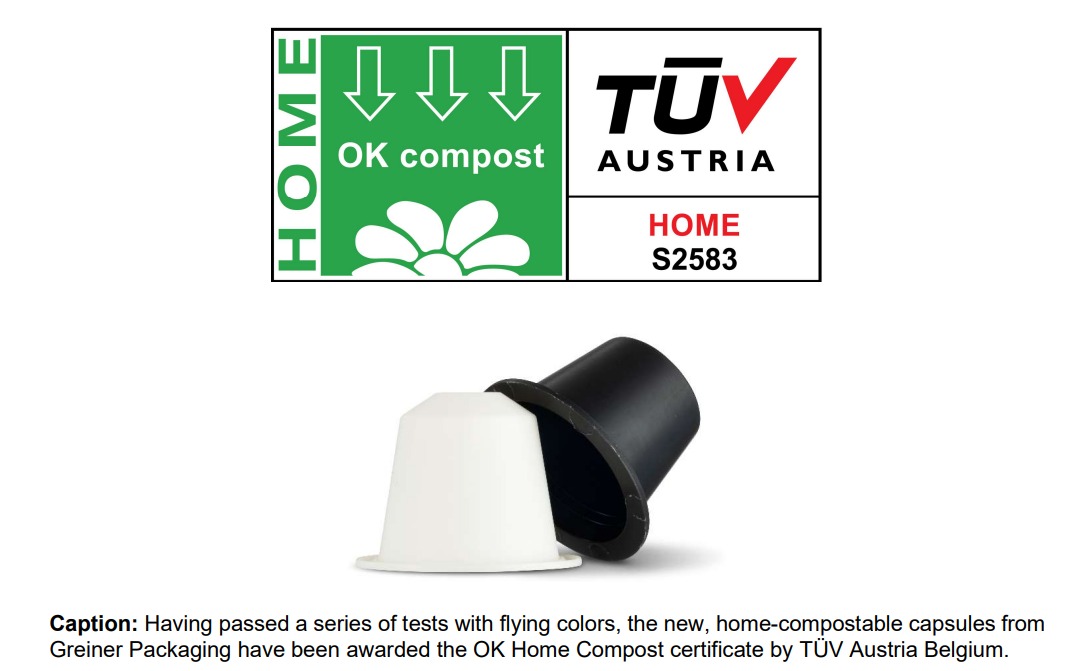
Capsules made of aluminum or plastic are suitable for a wide range of packaging applications, including for coffee, tea, and baby food. To improve their environmental footprint, Greiner Packaging has developed a solution made from a compostable polymer, so that customers can easily dispose of used capsules on their own backyard compost heaps. The capsules are now certified by TÜV Austria Belgium NV.
- Greiner Packaging has developed capsules made from compostable polymer
- Capsules can be home composted
- Packaging solution now certified by TÜV Austria Belgium NV
- Capsules suitable for wide range of beverages, including coffee
Kremsmünster, Austria (January 2023). Greiner Packaging has been successfully producing packaging solutions for the capsules market for many years. Coffee capsules are already commonplace in offices and homes, but now tea, cocoa, and even baby food and various soft drinks are increasingly available in capsules, too
Capsules biodegrade on compost heaps
Capsules are regularly criticized for the waste they produce – but this form of packaging is more environmentally friendly than its image might suggest. After all, a capsule provides the product with the best possible protection, preventing it from spoiling and going to waste. In addition, the coffee inside the capsule is measured out precisely, meaning that the consumer never uses too much. With one capsule containing exactly the right amount for one cup, cold coffee left over in the pot is a thing of the past. However, used capsules are still discarded. To address this waste issue, Greiner Packaging has developed a coffee capsule made from a compostable polymer, which can be easily recycled in a backyard composter. “In developing this packaging, we wanted to do our part by offering an environmentally friendly alternative to conventional capsule packaging. It was important to us to find a solution that would meet our high quality standards for product protection,” explains Taner Ertan, global business development manager at Greiner Packaging. “We invested a great deal of time in its development, especially in the search for the ideal polymer. We ultimately found a material that has excellent barrier properties, meaning it protects the capsule’s contents very effectively from oxygen penetration and loss of flavor.”
TÜV certification
The process of having the new capsule certified by TÜV Austria Belgium NV was completed a few weeks ago. Numerous tests have confirmed that the Greiner Packaging capsules meet the high standards required for the OK Home Compost certificate. This is only awarded to products that can be composted at low temperatures – for example, in the composter in a consumer’s backyard. “To be TÜVcertified, the capsules must break down within 26 weeks. Our home-compostable capsules biodegraded within just 15 weeks. We are delighted to have successfully obtained certification, as it means we can now offer fully sustainable capsule packaging to our customers and the consumers they serve,” says Ertan.
Biodegradable products on the rise
“Organic material accounts for around 50% of all household waste. That figure will loom even larger in the future due to the increasing popularity of biodegradable products such as packaging materials and disposable cutlery. Now we too can play a role here thanks to our certified capsule packaging solution,” Ertan adds.






